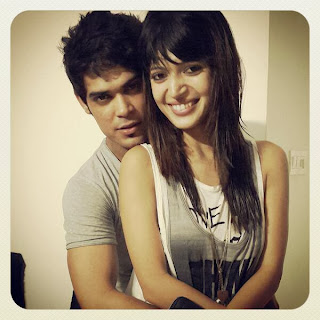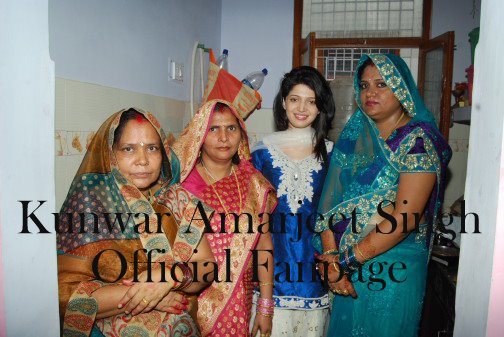Raghuraj Pratap Singh, more commonly known as
Raja Bhaiya (born October 31, 1967) is an Indian politician. He belongs to Bhadri family Oudh of Kunda, Uttar Pradesh. He was an Independent Member of Legislative Assembly (MLA), having been elected fifth time in a row from Kunda in the Uttar Pradesh legislative assembly election, 2012.
Life
Raghuraj was born to Raja Uday Pratap Singh in 1967. His grandfather shri Raja Bajrang Bahadur Singh was the founder vice chancellor of Pant Nagar Agriculture University and later the second governor of Himachal Pradesh state.
Raghuraj was the first in his family to enter politics; his father is
largely a recluse. Raghuraj's grand father had adopted his father Uday Pratap Singh.
Raja Bhajarang Bahadur singh, the grandfather of Raghuraj were three
brothers: Bhadreshwar Pratap Singh, Trilochan Pratap Singh and Bajarang
Bahadur Singh.
Raghuraj completed his primary education from Mahaprabhu Bal Vidayalaya Narayni Asram Shivkuti, Allahabad,
high school from Bharat Scout H.S. School in the year 1985,
intermediate from Colonel Ganj Inter College Allahabad in the year 1987,
and law graduation at Lucknow University. He contested and won the state elections from the Kunda seat in 1993, as an Independent. He was officially 26 years old,
but was possibly underage at the time.
In the Indian general election, 1999,
he put up Akshay Pratap Singh against the incumbent Ratna Singh (als
from a related family). It is in this election that Raghuraj started
using strongarm and criminal intimidation tactics. In the years 1997, 1999 and 2000, he was made minister in the BJP governments of Kalyan Singh, Ram Prakash Gupta and Rajnath Singh respectively. For the 2004 elections, he changed his stand and began supporting Samajvadi Party which made him minister in the 2004 Mulayam Singh Yadav government and the 2012 Akhilesh Yadav
government. In March 2013, he had to resign from the Akhilesh Yadav
cabinet after he was booked for the murder of Deputy Superintendent of
Police Zia-ul-Haque.
Jailed on terrorism charges
In 2002, on an FIR filed by a dissident Bharatiya Janata Party (BJP) MLA Puran Singh Bundela of alleged kidnapping and threatening with dire consequences, got Raghuraj arrested on the orders of then Chief Minister Mayawati
at the early hours about 3:00 a.m. of 2 November 2002. Later
Mayawati-led government in Uttar Pradesh declared him a terrorist, and
he was sent to jail under Prevention of Terrorism Act (POTA), along with his father Uday Pratap Singh and cousin Akshay Pratap Singh.
Subsequently, Akshay managed to get bail, but Raghuraj's pleas were rejected many times
From jail to cabinet minister
Within 25 minutes
of the Mulayam Singh Yadav's
government coming to power in 2003, all POTA charges against him were
dropped. However, the Supreme Court debarred the state government from
dismissing POTA charges
Eventually the POTA act was repealed in 2004, and although the court again refused to release Raghuraj,
he subsequently became a powerful man in the government, and was
accused by police officer R.S. Pandey (who led the raid on his house) of
having launched a vendetta against him.
Eventually R.S. Pandey was killed in a road accident,
which is currently being investigated by the CBI.
In 2005, he became the minister for Food and Civil Supplies, and
despite his pending criminal cases, he came to be assigned the highest
level of security (Z-category) provided by the state,
though the threats against him were not specified.
2007 Elections
In the,Uttar Pradesh state elections, 2007, he was overwhelmingly elected from Kunda with a margin of nearly half the votes cast
over Shiv Prakash Mishra of the Bahujan Samaj Party. He had stood as an Independent, supported by the Samajwadi Party.
He also wields considerable influence over five assembly constituencies
in the Pratapgarh region, as well as some in neighbouring Bihar.
In election rallies in this region where he is present, the actual
candidate may never speak or even be mentioned in his speech; "they are
all shadows. Raja Bhaiya, alone, is the substance.".
His cousin and political follower Akshay Pratap Singh alias
Gopalji won the 2004 elections to the 14th Lok Sabha from Pratapgarh. Much of his campaign against Congress leader, Ratna Singh (from a related branch of the family), was planned from the jail premises where Raja Bhaiya was incarcerated.
After the 2007 elections, when Mayawati swept to power with a majority, Raghuraj again came under the police radar.
He became a cabinet minister in the newly elected SP government led
by Mulayam Singh Yadav's son Akhilesh Yadav. He was assigned the Food
and Civil Supplies ministry as well as prison department.
On 3 March 2013, Deputy Superintendent of Police (DSP) Zia Ul Haq was
killed during clashes between villagers and police in Uttar Pradesh
minister Raghuraj Pratap Singh alias Raja Bhaiyya's constituency,
Kunda.Following a complaint by the slain officer's wife, Parveen Azad,
Pratapgarh police have registered a case against Raja Bhaiyya for his
alleged involvement in the "conspiracy" which resulted in the gang war
and subsequent murder of the police officer. In the FIR, Parveen has
said her husband was killed by the henchmen of Raja Bhaiyya. She has
named Gulshan Yadav, chairman of Kunda Nagar Panchayat, Harion
Srivastava, a representative of Raja Bhaiyya and Guddu Singh, Raja
Bhaiyya's driver as prime accused. She has also named two other
villagers - Kamta Prasad Pal and Rajesh Kumar Pal. The police have
registered a murder case against other accused who were named in the
FIR.
FEW PEOPLE are able to maintain a life in politics
coterminous with a life in crime. Raja Bhaiya, a strongman in Uttar
Pradesh, has done exactly that for two decades. But comeuppance is the
staple of the men of the mafia who straddle politics. Raja Bhaiya had
his this week when an uproar over the killing of a policeman and two
others near his hometown forced him to quit as a minister in the state’s
one-year-old government.
If one goes by the criminal cases filed against him over the years,
Raghuraj Pratap Singh, as the 46-year-old politician was named at birth,
took to the life of an outlaw barely a year after he was old enough to
vote. When he became a minister in the state government in March 2012
for the fifth time in 15 years, UP Police had 45 criminal cases against
him. The Central Bureau of Investigation (CBI) is also probing him in
two cases.
The latest charges emanate from the 2 March mob lynching and shooting
of Deputy Superintendent of Police (DSP) Ziaul- Haq after he reached a
village to investigate the killings, allegedly by Raja Bhaiya’s
shooters, of the village chief and his brother.
The nickname Raja Bhaiya draws on his lineage as an upper-caste
Rajput from a family of landlords that once owned vast stretches of land
for generations. He is also known as Raja (king) of Kunda, the name of
his hometown of about 35,000 people. It is widely known that he still
controls enormous tracts of agricultural land as well as many illegal
trading activities such as those relating to sand mining from the
riverside. Those who are especially in his thrall also call him “
noor-e-nazar” (the light of the eyes). Of course, he is also feared as the “
Kunda ka gunda” (the don of Kunda).
“Kunda has been a hotbed of all kinds of anti-social activities and
crime since Raja Bhaiya first became a legislator from there 20 years
ago,” says Rajkumar Ratna Singh, the Lok Sabha MP from Pratapgarh, which
includes Kunda. “Both the BJP and the Samajwadi Party are guilty of
effectively protecting this criminal by making him a minister.”
Singh, who is from the Congress party, claims the slain police
officer had been on Raja Bhaiya’s hit list as he had put an end to
illegal sand mining allegedly carried out by Raja Bhaiya’s men near the
Ganga river. The DSP, she says, was trying to enforce a Supreme Court
ruling that most others had been frightened to implement. “Local
policemen act like Raja Bhaiya’s servants,” says Singh. Zia-ul-Haq had
dared to raid the mining site and seized trucks full of the illegal
consignment that are still parked at the local police station. “That is
why the policemen with him abandoned him and ran away. It was
pre-planned murder.”
Few are shocked at the turn of events involving Raja Bhaiya. Mulayam
Singh Yadav, who heads the Samajwadi Party that rules Uttar Pradesh, had
made worsening crime under the previous government’s rule a key issue
in his campaign for the 2012 Assembly election. But old-timers weren’t
surprised when Raja Bhaiya wormed his way into the government of Yadav’s
son, Akhilesh, who became chief minister after the Samajwadi Party won
the election. The Yadavs need Raja Bhaiya to mollycoddle the Rajputs,
who are numerically and politically significant in the state.
The last time Mulayam was chief minister, from August 2003 to May
2007, he had made Raja Bhaiya the food minister. That tenure resulted in
the CBI filing a case over alleged embezzlement of hundreds of crores
of rupees in a scheme to supply subsidised food to the poor. Filed in
December 2007 after Mulayam’s bitter rival, Mayawati, became the chief
minister, that case is still continuing. In her previous tenure during
2002-03, Mayawati had launched an all-out war against Raja Bhaiya and
sent him to prison. Last year, Akhilesh had wanted to keep Raja Bhaiya
out but his father overruled him. Raja Bhaiya’s tenure as prison
minister was marked by violence by jail inmates, such as by a gangster
named Brijesh Singh who had been brought from Gujarat. Last month,
Akhilesh divested Raja Bhaiya of the prison portfolio.
Schooled in Allahabad, Raja Bhaiya almost didn’t graduate as his
father believed that education made cowards of men. But his mother’s
insistence saw him attend Lucknow University. But Raja Bhaiya was
clearly no coward: by the time he turned 19, he had several criminal
cases filed against him already. He debuted in politics in 1993, getting
elected as an independent legislator at the age of 26 with the support
of the BJP. Ironically, Mulayam had then opposed Raja Bhaiya as he was
accused of masterminding anti-Muslim violence in a village of Kunda
during 1991-92. Mulayam even disrupted proceedings in the UP Assembly
for a week demanding police action against the newly elected legislator.
Raja Bhaiya, who has never joined a political party, has been the
bugbear of every politician in the state at some time or the other. In
1996, BJP’s Kalyan Singh campaigned against him in the Assembly election
only to be forced to make the strongman a Cabinet minister in 1997 when
the BJP leader became chief minister. Two successive BJP chief
ministers, including the current party president, Rajnath Singh, had
retained Raja Bhaiya as their minister
HIS TROUBLES with Mayawati began when she formed a
government in May 2002 with the BJP’s support. She resisted a push by
the BJP, which had supported Raja Bhaiya in the election, to make him a
minister. In much of rural Uttar Pradesh, the caste Rajputs are the
worst tormentors of the lowest-caste Dalits, who are Mayawati’s core
votebank. Raja Bhaiya mobilised Rajput MLAs of the BJP who opposed the
coalition with Mayawati and spearheaded a dissident movement against her
government. He was arrested in November 2002 after he allegedly
threatened a BJP legislator.
Thus was Mayawati’s war against him launched. In two months, police
would raid Raja Bhaiya’s palatial ancestral home in Kunda and recover,
among other firearms, two AK-47 rifles. His father, Udai Pratap Singh,
and a cousin, too, were arrested and booked under the Prevention of
Terrorism Act (POTA) for allegedly conspiring to kill Mayawati. Over the
next weeks, the police carried out more arrests in a bid to destroy
what it said was Raja Bhaiya’s network of terror that, among others,
ensured he lorded over public works and irrigation contracts running
into crores of rupees. Famously, Mayawati also acquired a huge private
lake on Raja Bhaiya’s estate that was home to crocodiles and named it
Ambedkar Bird Sanctuary. This was a symbolic blow by a Dalit against a
Thakur that made her a hero among the Dalits and him a symbol of injured
Rajput pride.
When police attacked Rajput youths protesting the arrests, Mulayam
launched a political campaign vowing to free them if he came to power.
When he did become chief minister replacing Mayawati in August 2003, he
promptly released Raja Bhaiya from jail and made him a minister. On her
part, Mayawati decided to court the Brahmins, the upper-caste rivals to
the Rajputs. Her lieutenant, Satish Mishra, addressed hundreds of
Brahmin rallies and conventions across the state over three years. This
brought her political gains in the 2007 election as the Brahmins and the
Dalits helped her win an absolute majority in the Assembly. But she
lost power again in 2012, beginning a revival in the fortunes of Raja
Bhaiya as the Samajwadi Party won power.
Opposition leaders, however, believe that this time Raja Bhaiya may
have tied Chief Minister Akhilesh, too, in knots. Raja Bhaiya has
claimed that one of the key accused in the 2 March killings, Rohit
Singh, had actually accompanied him to a meeting with Akhilesh. “Raja
Bhaiya has created potential trouble for Akhilesh Yadav,” says Congress
leader Pramod Tewari who is a legislator from near Kunda. Rohit Singh
has more than a dozen cases of crime, including murder and criminal
conspiracy, against him.
Since the 2 March killings, Raja Bhaiya has said he did not need to
get the police officer murdered as he could have easily got him
transferred out of Kunda with his influence as a minister. But sources
in the police debunk that claim. Anil Kumar Rai, who has been
transferred out as the Superintendent of Police in Pratapgarh, had stood
up to Raja Bhaiya on postings and transfers, a senior police officer in
the state told TEHELKA on the condition of anonymity. “Also, as the
inquiry officer into last year’s communal violence in Kunda, Zia-ul-Haq
had clinching evidence about Raja Bhaiya’s involvement in it,” the
officer said. The slain police officer was shortly to submit his report
to the government that would have reportedly pointed a finger at Raja
Bhaiya.


































